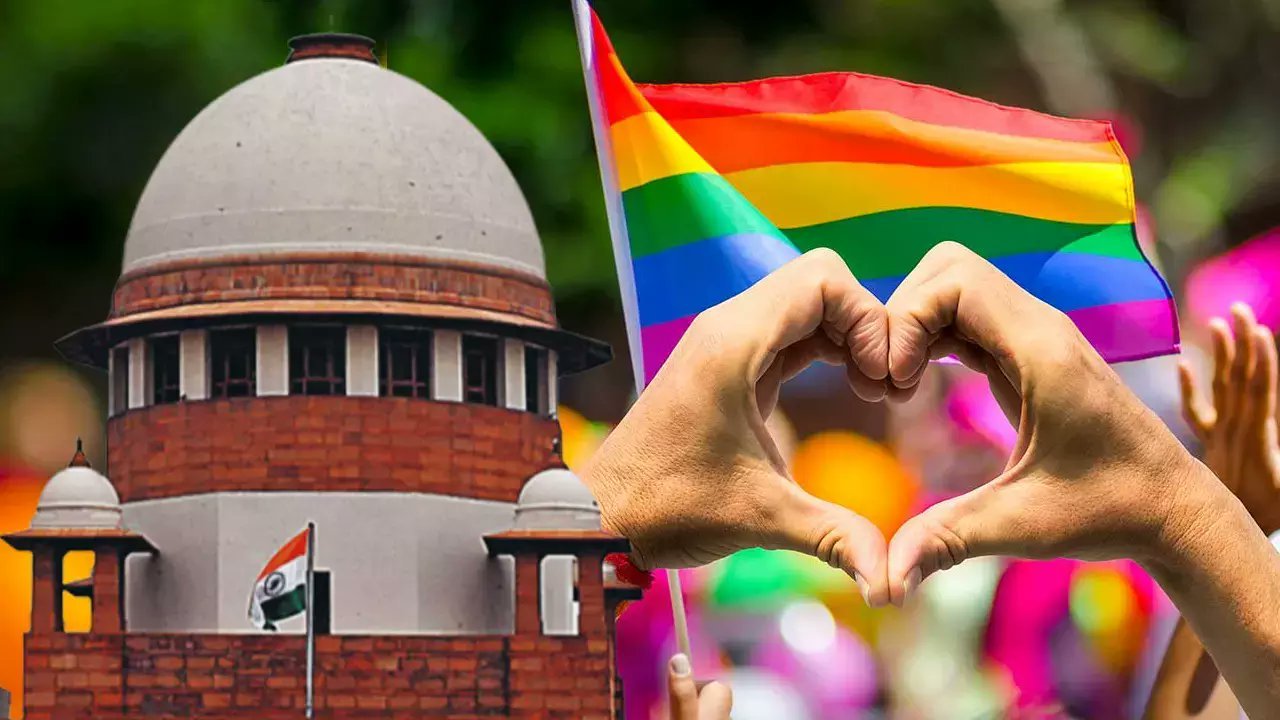Supreme Court Rejects Same-Sex Marriage Legalization: Millions of lesbian, gay, bisexual, transgender, and queer (LGBTQ+) persons in India were dismayed by the Supreme Court’s decision on Tuesday to deny same-sex couples legal recognition and rule that only the federal government and state legislatures can approve marriages. By a 3-2 margin, the court also declined to uphold civil unions and queer couples’ rights to adopt children. Noting that requiring the state to recognise or grant legal status to some unions would go against the separation of powers doctrine and might have unintended consequences.
“This court can only interpret and apply the law; it cannot create it.” The ruling said that the court must abstain from topics while using its judicial review authority, especially where they have an impact on policy that belongs in the legislative realm.
Court says No to Same-Sex Marriage Legalization

The Constitution bench, which was indeed made up of the Chief Justice of India (CJI), Dhananjaya Y. Chandrachud, and justices Sanjay Kishan Kaul, S. Ravindra Bhat, Hima Kohli, and P.S. Narasimha, unanimously however agreed that the right to marry was not a fundamental right and that it was outside the purview of the courts to direct the legislature to define same-sex marriages and queer relationships through new legislation.
The unanimous opinion of the bench was that “the directions or orders of this court cannot encroach upon the domain of the legislature.” Noting that Parliament and state assemblies had passed legislation establishing and governing the sociolegal institution of marriage under the Constitution.
However, the two sides disagreed on two crucial points: adoption rights and the recognition of civil unions. It is often seen as the first step towards giving full marriage equality. The unanimous opinion of the bench was that “the directions or orders of this court cannot encroach upon the domain of the legislature.” Noting that Parliament and state assemblies had passed legislation establishing and governing the sociolegal institution of marriage under the Constitution.
Reaction on the Verdict
Supriyo Chakraborty, one of the petitioners, stated, “We are profoundly disappointed by the judgement today. As Chandrachud and Kaul read out concurring judgements condemning discrimination against gay couples, recognising civil unions, and upholding the rights of LGBTQ+ persons to adopt, the ruling in the historic case started on a positive one for the petitioners.
But after the ruling had been read out for more than 100 minutes. JBhat and Kohli concurred on their decision, and justice Narasimha read out his own conclusion. Making it plain that the two justices were in the minority.

“It was an emotional roller coaster for us.” A petitioner named Sameer Samudra stated, “I was on the phone with my family at the time. And one second we believed we got it, and the next it was despair.
The government vowed to establish a powerful committee during the hearings to study a range of issues harming the rights of non-heterosexual couples and take corrective action. The committee would be presided over by the Union cabinet secretary. The minority ruling outlined the panel’s terms of reference. Including concerns of succession, maintenance, and pensions, as well as financial, medical, and jail visitation rights. It further stated that the recommendations would be put into effect by administrative measures. The majority judgement, however, was limited to the panel’s composition.
Tushar Mehta, the solicitor general, led the Center’s resistance against same-sex couples receiving legal recognition, and he applauded the decision.












Be First to Comment